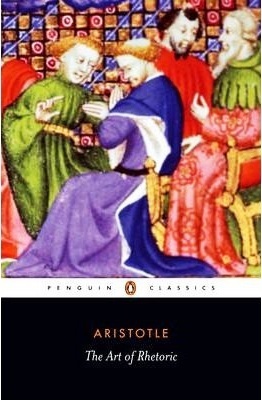The Art of Rhetoric Book Summary
TL;DR
Aristotle's 'The Art of Rhetoric' explores the principles of persuasion, emphasizing the importance of logos, ethos, and pathos, while offering a profound analysis of oratory and its impact on society.
What is The Art of Rhetoric about
In 'The Art of Rhetoric,' Aristotle delves into the practices and theories of effective communication, particularly in the context of public speaking within the democratic setting of ancient Athens. He establishes rhetoric as an essential skill for politicians and citizens alike, distinguishing it from mere tricks of persuasion. Aristotle's work presents a systematic approach to understanding informal reasoning, the aesthetics of prose, and the emotional appeals that resonate with audiences. This text not only serves as a foundational guide for orators but also profoundly influenced Western thought regarding the power of persuasive language.
The Art of Rhetoric 8 Key Takeaways
The Rhetorical Triangle
Aristotle introduces the concept of the rhetorical triangle, which comprises logos (logic), ethos (credibility), and pathos (emotional appeal), essential for effective persuasion.
Types of Rhetoric
He categorizes rhetoric into three types: deliberative (political), forensic (legal), and epideictic (ceremonial), each serving distinct communicative purposes.
The Role of Character
Aristotle emphasizes the importance of the speaker's character (ethos) in persuasion, asserting that credibility and moral virtue enhance persuasive power.
Emotion in Persuasion
He highlights the significance of understanding the emotions of the audience (pathos) to effectively engage and persuade them.
Prose Style
Aristotle presents an early aesthetic evaluation of prose style, asserting that clarity and appropriateness of style are vital for effective communication.
Informal Reasoning
He outlines methods of informal reasoning that enable speakers to construct persuasive arguments based on common beliefs and values.
Sophistry vs. Rhetoric
Aristotle critiques sophistry, distinguishing it from genuine rhetoric, which seeks to inform and uplift rather than manipulate.
Civic Engagement
He advocates for rhetoric as a means of promoting civic engagement and ethical discourse in a democratic society.
Top The Art of Rhetoric Quotes
- "Rhetoric is the art of persuasion, and persuasion is essential to the practice of democracy."
- "The ability to speak well is a crucial skill, one that can shape destinies and influence the course of society."
- "In seeking to persuade, one must understand the emotions of the audience as well as the logic of the argument."
Who should read The Art of Rhetoric?
This book is ideal for students, scholars, and anyone interested in the art of effective communication. It offers valuable insights into the principles of persuasion that can enhance public speaking skills, improve critical thinking, and foster a deeper understanding of the ethical dimensions of rhetoric.
The Art of Rhetoric Best Reviews
- "A foundational text in rhetoric that continues to resonate in contemporary discussions of communication and persuasion." - The New Yorker
- "Aristotle's insights into human behavior and the art of persuasion remain incredibly relevant in today's political and social discourse." - The Times Literary Supplement
People also liked these summaries
The Art of Rhetoric FAQs
What is the main focus of Aristotle's rhetoric?
Aristotle's rhetoric primarily focuses on the art of persuasion through effective communication, analyzing how speakers can appeal to logic, character, and emotions.
How does Aristotle's view of rhetoric differ from Plato's?
Unlike Plato, who saw rhetoric as potentially manipulative, Aristotle regarded it as a tool for improving civic life and promoting ethical engagement with audiences.
Why is 'The Art of Rhetoric' still relevant today?
The principles laid out by Aristotle in rhetoric are foundational to modern communication, influencing practices in politics, law, and everyday discourse.
